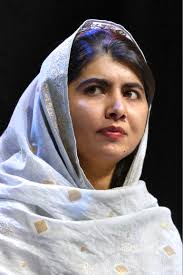The Impact of Malala Yousafzai on Global Education

Introduction
Malala Yousafzai, the youngest-ever Nobel Prize laureate, has become a global icon for advocacy in education, particularly for girls. Her remarkable resilience and commitment to education reform have spotlighted the ongoing struggles faced by millions of girls around the world who are denied their right to learn. Understanding her journey is crucial as it highlights the significant impacts of activism in education and the importance of fighting for equal opportunities.
Malala’s Early Life and Activism
Born on July 12, 1997, in Mingora, Pakistan, Malala grew up in a region where the Taliban frequently opposed girls’ education. Inspired by her father, Ziauddin Yousafzai, who ran a school for girls, Malala began to speak publicly about the importance of education from a very young age. Her advocacy intensified after she started writing a blog for the BBC Urdu, where she documented her life under Taliban rule and her determination to go to school.
The Attack and the Awakening
In October 2012, Malala’s activism led to a near-fatal assassination attempt when she was shot in the head by a Taliban gunman on a school bus. The attack sparked international outrage and brought unprecedented attention to the issue of girls’ education. Following her recovery in the UK, Malala continued her fight, co-founding the Malala Fund to champion education for girls worldwide.
Continued Advocacy and Impact
Today, the Malala Fund works in various countries to ensure that girls can access 12 years of free, quality education. Through her speeches and public appearances, such as at the United Nations, Malala has continued to advocate for policy changes and global student rights. The impact of her efforts is evident, with numerous initiatives being launched worldwide aimed at improving girls’ access to education amidst conflicts and societal barriers.
Conclusion
Malala Yousafzai’s story is one of courage, resilience, and the relentless quest for justice for young girls everywhere. Her influence transcends borders, inspiring a generation to take action for a world where education is a universal right. As challenges persist, her ongoing work serves as a reminder of the power of one voice and the vital importance of education in shaping a more equitable future. For readers, engaging with Malala’s story encourages reflection on how we can contribute to the global fight for education access, ensuring that no girl is left behind.









